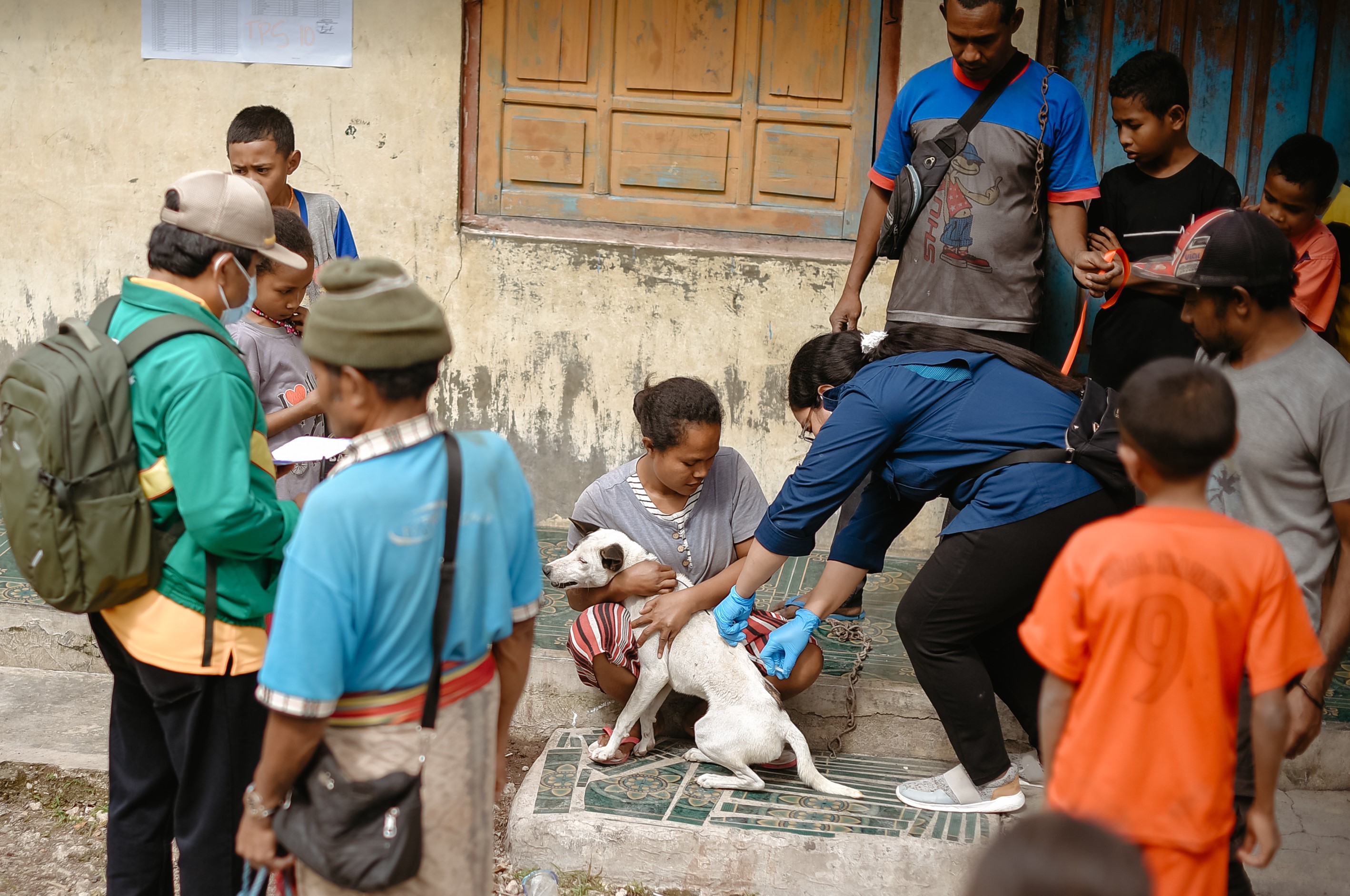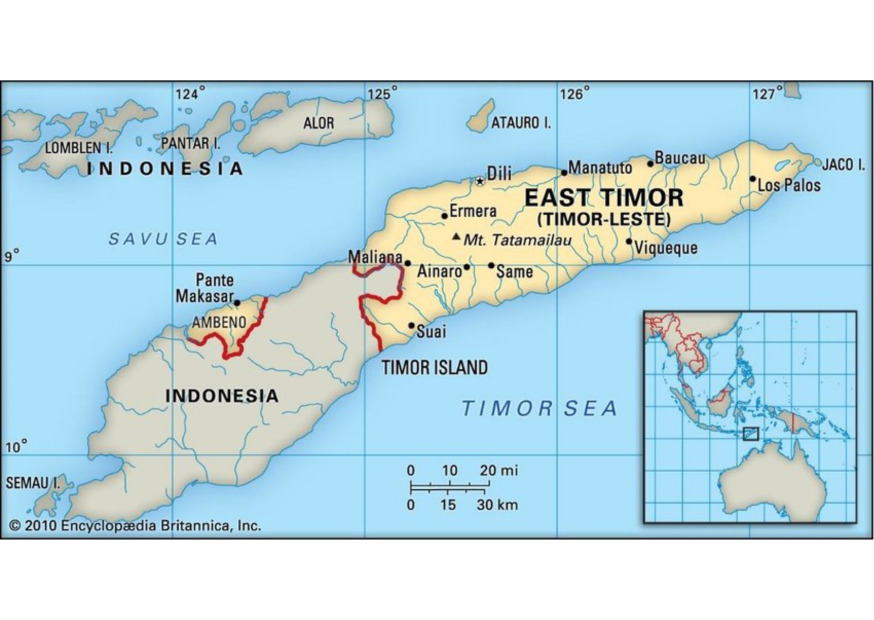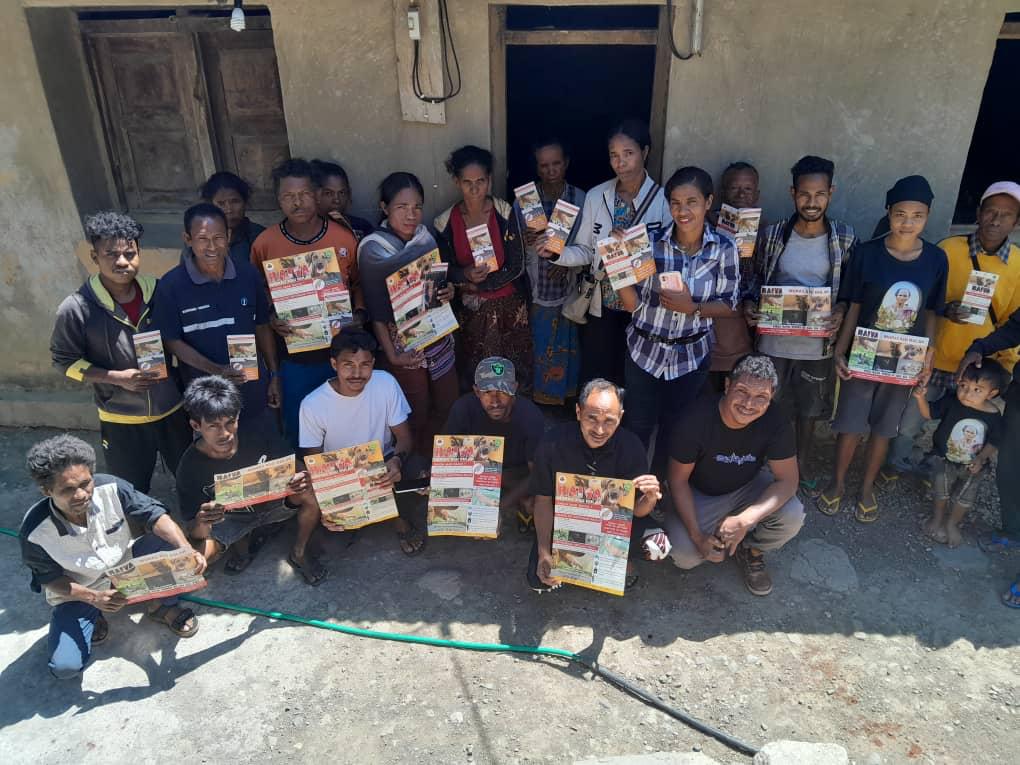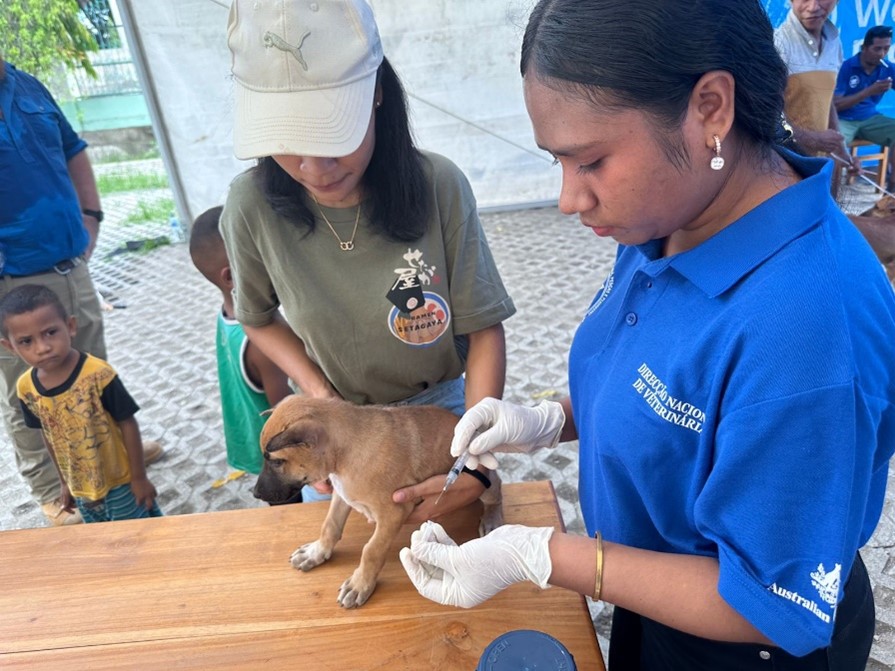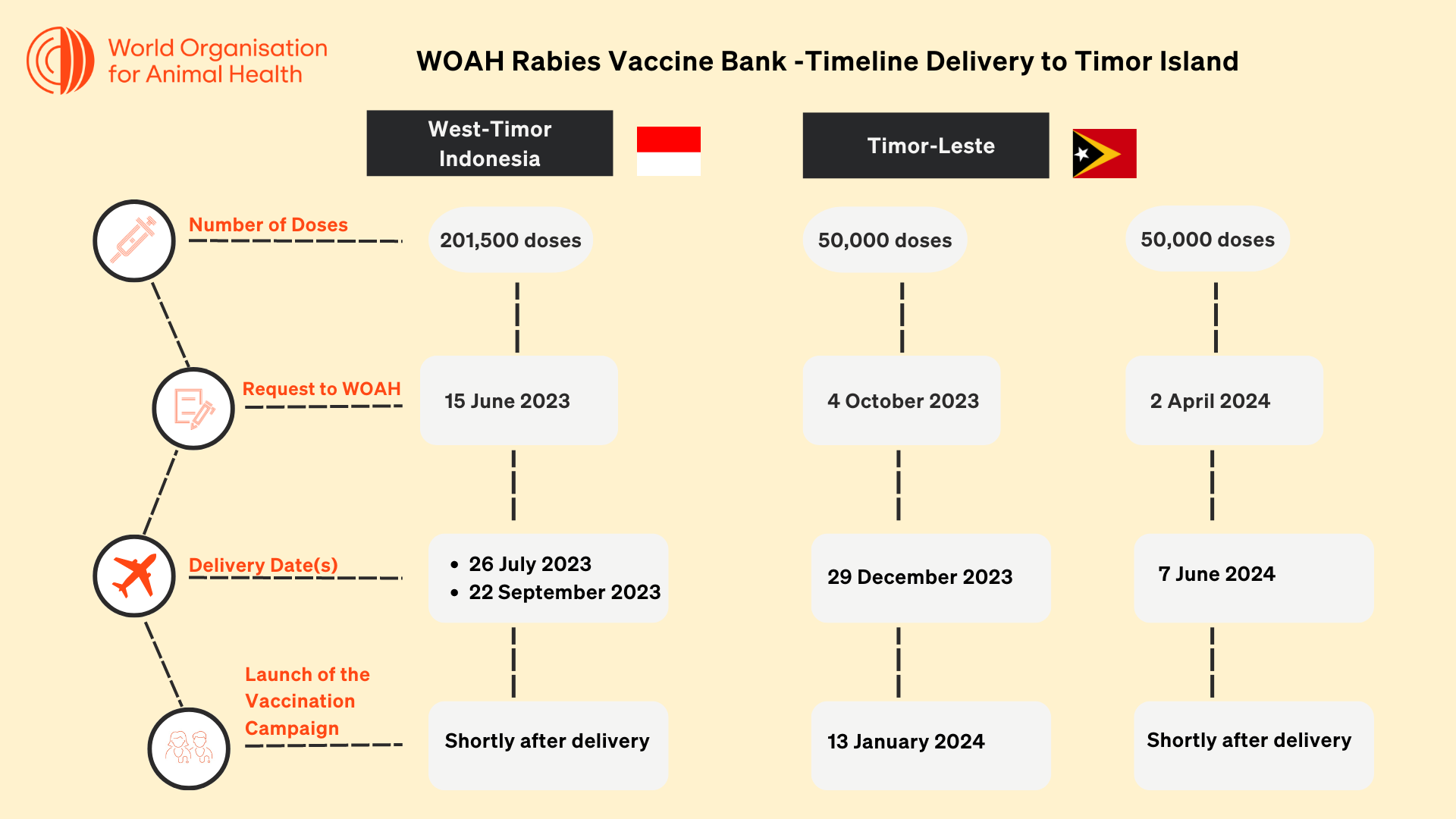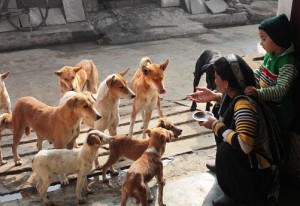
Rabies is 100% preventable through vaccination of dogs, which prevents transmission to humans. During rabies outbreaks, Veterinary Services respond by conducting mass vaccination of dogs, as it is the most cost-effective and practical way of reducing the impact of rabies. On the island of Timor, following rabies outbreaks, WOAH Rabies Vaccine Bank mechanism contributed to emergency responses ensuring the utilisation of high-quality vaccine in a timely manner.
Map of Timor Island
The island of Timor, populated by around 3.3 million people, is divided between two countries: Timor-Leste in the east and Indonesia in the west, within the Indonesian part of the island, lies the exclave of Timor-Leste known as Oecusse
The island as a whole was historically rabies-free. The situation changed in May 2023, when rabies was first detected in the South-Central Timor Regency (district level) of the Indonesian part of the Island, and reported by the government of East Nusa Tenggara province. Indonesian Veterinary Services also notified the World Organisation for Animal Health (WOAH) through World Animal Health Information System (WAHIS): WAHIS (woah.org). This is the first occurrence of the disease in Timor Island. Animal rabies was detected following a report on human rabies.
The outbreak had tragic consequences and led to several human deaths. The lack of awareness among the local population prevented the administration of post-exposure prophylaxis following a dog bite. These events encouraged mass-vaccination of dogs.
On June 15, 2023, following the recent developments in West-Timor, the Directorate General of Livestock and Animal Health Services (DGLAHS), Ministry of Agriculture, government of the Republic of Indonesia, requested WOAH to provide 200,000 doses of vaccines through its Rabies Vaccine Bank. DGLAHS mentioned the previous delivery of 200,000 doses to Bali as a reference since this province is currently conducting rabies control activities including mass vaccination of dogs.
Delivery at Kupang Airport (© Australia Indonesia Health Security Partnership (AIHSP))
WOAH Director General authorised the donation of 201,500 doses of high-quality vaccines. The procurement of vaccines was made possible thanks to the support of the Government of Australia.
Delivery at Kupang airport (© Australia Indonesia Health Security Partnership (AIHSP))
The vaccines were delivered in two batches, handed over on 26 July and 22 September 2023. The short notice of time between the confirmation from WOAH DG and the first delivery contributed to an emergency response.
Timor-Leste had historically been rabies-free. However, the recent outbreak in the Indonesian part of Timor posed a significant risk of spread. The Veterinary Services decided to strengthen border surveillance, raise awareness, and conduct vaccination of dogs in border areas as preventive measures (see: On the Frontline to Maintain Rabies-Free Status in Timor-Leste – WOAH – Asia).
Village dwellers near the border informed on rabies
On 4 October 2023, The National Directory of Veterinary Services of Timor-Leste requested 50,000 doses through WOAH Vaccine Bank as part of an initial vaccination phase. The request was formulated after several exchanges between Timor-Leste Delegate and the Sub-Regional Representation for South-East Asia. The vaccines were delivered on 29 December 2023, and the vaccination campaign was launched on 13 January 2024.
Vaccination campaign in Oecusse, Timor-Leste
Despite these efforts in border areas (Timor-Leste has a 228 km land border with Indonesia) rabies entered into Timor-Leste. It was notified on WAHIS on April 4, 2024; the statement indicates this is the first rabies occurrence in the country. Additionally, according to WHO, as of 26 March 2024, a total of 29 suspected rabies cases in humans, with exposure to dogs, were reported in Oecusse Municipality. The geographical specificity of the enclave made it particularly vulnerable to the spread of the disease.
To continue their efforts and prevent human death, the Veterinary Services submitted a request to obtain an additional 50,000 doses. The delivery of the second batch occurred on June 7. Similar to Indonesia, both requests were made possible thanks to support of the Government of Australia.
In total, 301,500 doses of high-quality vaccines have been procured in order to control rabies on Timor Island, with all the doses already delivered.
To contribute to emergency responses in the field, WOAH was able to adapt to the circumstances and facilitated the rapid delivery of high-quality vaccines despite logistical challenges. WOAH has successfully developed a mechanism to ensure the rapid procurement of vaccines from selected vaccine manufacturers.
the advantages of using it are already known by Members. While the Vaccine Bank is designed to support Members in their national strategy, Members also activate it to launch mass vaccination campaigns as an emergency response.
In Timor Island, controlling and eradicating the disease will necessitate continuous efforts from various stakeholders at the national, provincial, and local levels. Additionally, achieving the necessary vaccination rate for herd immunity requires actions from Veterinary Services in the field. To support these initiatives, discussions are ongoing for additional procurements of high-quality vaccines through the WOAH Vaccine Bank. The Sub-Regional Representation for South-East Asia monitor closely the situation in connection with the Indonesian and Timor-Leste Veterinary Services.
The WOAH Rabies Vaccine Bank has been an invaluable tool for Veterinary Services, especially during emergency situations. While vaccination is essential and saves lives, the elimination of rabies also relies on a constant commitment from authorities through the provision of necessary human and financial resources. In Bali, Indonesia, WOAH, in coordination with APCAT (Asia Pacific Cities Alliance for Health and Development), has been engaging Balinese authorities to enact local regulations on rabies control and has ensured budget allocations for operationalising vaccination campaigns and raising awareness. This demonstrates the efforts needed to control and eliminate rabies, efforts that WOAH will continue to support.
